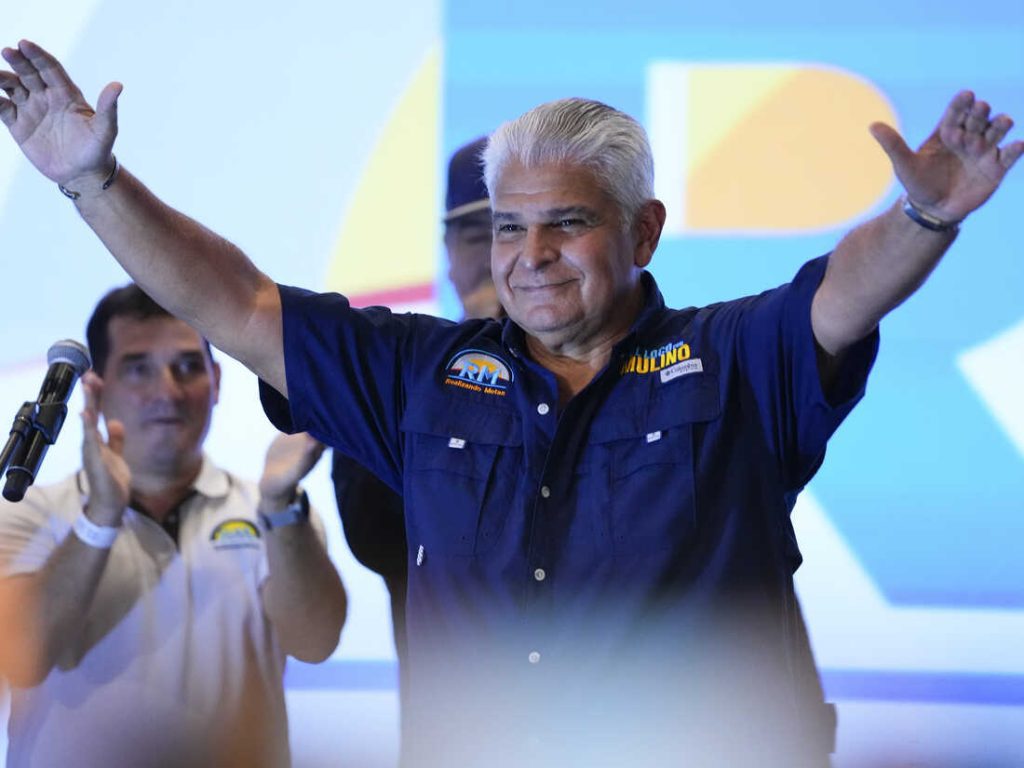Jose Raul Mulino, who was supported by a previously convicted former leader, has been declared the president-elect of Panama after Sunday's elections.
Mulino won the election by receiving 34 per cent of the votes in the single-round, first-past-the-post race, as confirmed by the country’s electoral tribunal.
The new 64-year-old president will have to deal with widespread corruption, a severe drought affecting the Panama Canal, and a flow of migrants heading to the US through the country's jungles.
Mulino accepted the election result with “responsibility and humility,” promising to take bold actions to revive the economy.
He told his enthusiastic supporters that the election represented “the will of the majority of the Panamanian people.”
Runner-up Ricardo Lombana, who received 25 per cent of the vote, conceded defeat just before the official result was announced.
Many polling stations had long queues as the 4.4 million people in the country voted for a new president, parliament, and local governments.
Opinion polls had indicated that the right-wing lawyer Mulino was far ahead of the other eight candidates.
It took a last-minute court decision on Friday to validate his candidacy for a five-year term, despite his lead in the polls.
On Monday, Washington congratulated Mulino, with Secretary of State Antony Blinken praising the people of Panama for their participation in the election.
Blinken stated, “The United States will continue to work with Panama on our common goals of inclusive, sustainable economic growth, bolstering citizen security, and cooperatively curbing irregular migration through the Darien.”
– 'Panama needs to change' –
Mulino became the candidate for the right-wing Realizing Goals (RM) party after former president Ricardo Martinelli lost an appeal against a money-laundering conviction.
Challenges to Mulino's candidacy, based on the fact that he had not won a primary vote or chosen his own running mate as required by law, were dismissed by the Supreme Court.
This ruling was welcomed by Martinelli, who is believed by most Panamanians to continue to exert influence from behind the scenes, according to recent polls.
Despite this, Mulino vowed after his victory that he “is not the puppet of anyone.”
Martinelli, who is still popular in Panama, has sought asylum at the Nicaraguan embassy, from where he supported his protege's campaign.
After voting, Mulino visited Martinelli at the embassy, and a video released by Martinelli showed the two embracing and saying “Brother!” and “We are going to win!”
Many people in Panama yearn for the economic success during Martinelli's 2009-2014 government, which saw infrastructure development including the expansion of the canal and the construction of Central America’s first metro line.
Survey results indicated that voters' main concerns were the high cost of living, access to drinking water, and crime.
Teacher Jennifer Navarro, aged 50, said, “Panama needs to change. There's too much corruption.”
– Worries about the economy –
President Laurentino Cortizo, from the PRD centre-left party, will leave his position after a term marked by allegations of widespread official corruption, decreasing foreign investment, and high public debt.
The presidency in Panama is limited to one term.
Currently, about 45 percent of jobs in Panama are in the informal market, and the unemployment rate is close to 10 percent, leading to high income inequality.
According to the International Monetary Fund, the country's GDP growth is expected to decrease from 7.3 percent in 2023 to 2.5 percent this year.
One factor in this decline is the Panama Canal, which handles about six percent of global maritime trade, experiencing reduced traffic due to a severe drought.
Mulino will also have to address the issue of the Darien Gap between Colombia and Panama, through which over half a million undocumented migrants passed last year.
AFP



